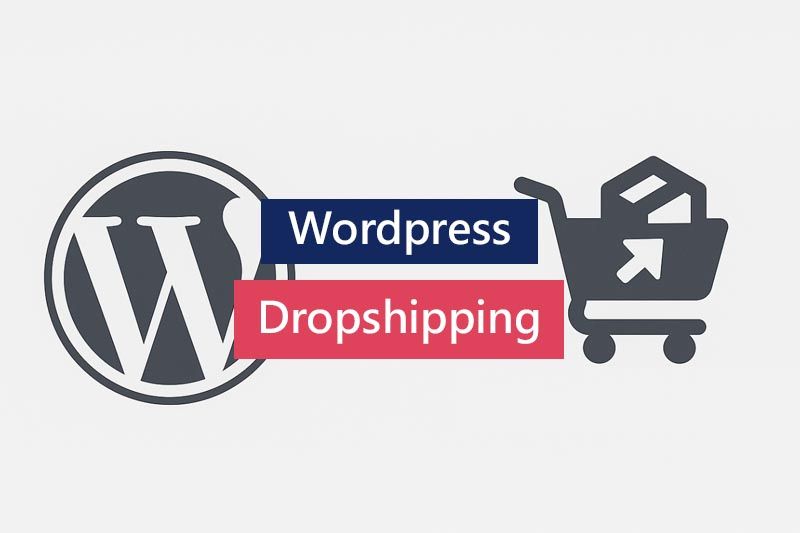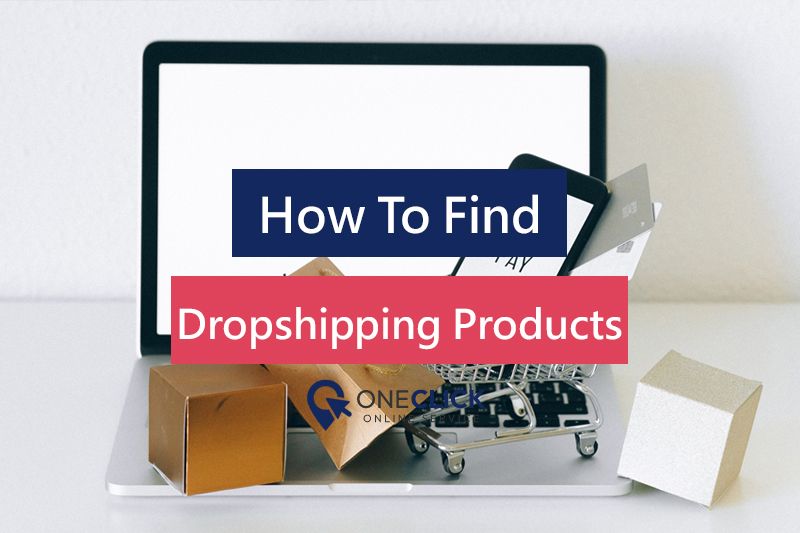Shipping from China to Germany 2025
Table of contents
- Overview of Shipping Methods and Options from China to Germany
- Shipping from China to Germany: Major Ports and Trade Routes
- Shipping Costs
- Pricing Estimates
- Transit Times and Tracking
- Customs Clearance and Regulations When Shipping from China to Germany
- How to Choose a Reliable Freight Forwarder
- Best Practices for Efficient Shipping from China to Germany
- FAQs about Shipping from China to Germany
- Ship Smarter from China to Germany with Oneclick Online Service
Shipping goods from China to Germany is a critical aspect of international trade, especially for businesses looking to import products efficiently.
In 2025, several shipping methods are available, each with its own advantages and drawbacks. Choosing the right method depends on your priorities, such as cost, speed, and reliability.
In this blog, we'll explore the key shipping options: sea freight, air freight, and rail/express freight.
Key Takeaways
- A variety of shipping methods provide flexibility tailored to different business needs and shipment sizes.
- Mastering shipping logistics is essential for successful international trade, especially when expanding into new markets.
- Customs regulations, shipping choices, and the intricacies of logistics can significantly influence the cost, efficiency, and speed of your shipments.
Overview of Shipping Methods and Options from China to Germany
Expanding your business from China to Germany requires careful consideration of your shipping logistics. Choosing the right shipping method can greatly affect your costs, delivery times, and overall operational efficiency. By understanding the nuances of sea, air, and rail freight, you can make informed decisions that best align with your business goals.
Sea Freight
Sea freight is the most widely used method for shipping goods internationally due to its cost-effectiveness, especially for large or heavy shipments. There are two primary options within sea freight: Full Container Load (FCL) and Less than Container Load (LCL).
Full Container Load (FCL):
FCL is ideal for businesses with large shipments, enough to fill at least half of a 20 or 40-foot container. With FCL, your cargo is allocated a dedicated container, meaning your goods are not mixed with those of other shippers. This offers several advantages:
- Enhanced Security: Your products are isolated, reducing the risk of damage or contamination from other shipments.
- Faster Handling: FCL shipments are generally processed more quickly at ports because there is no need to consolidate or deconsolidate cargo. This can lead to faster overall transit times.
- Efficiency: For large volumes, FCL can be more economical in terms of cost per unit of goods shipped.
Less than Container Load (LCL):
LCL is the go-to option for businesses with smaller shipments that do not fill an entire container. Instead, you share container space with other shippers, which can lower your shipping costs:
- Cost-Effective for Smaller Shipments: LCL allows you to pay only for the space your cargo occupies, making it a more economical choice for smaller volumes.
- Flexible Scheduling: LCL is suitable for businesses that do not have strict delivery deadlines, as the consolidation process can lead to longer transit times.
- Broad Accessibility: Ideal for businesses that need to ship smaller quantities but still require access to international markets.
Pros:
- FCL: Best for large shipments, offers more privacy and faster handling at ports.
- LCL: More economical for smaller shipments, provides flexibility without the need for a full container.
Cons:
- FCL: Not cost-effective for smaller volumes; businesses with small shipments may pay for unused space.
- LCL: Longer transit times due to the need for consolidation and deconsolidation of goods with other shipments.
Air Freight
Air freight is the fastest shipping option, making it ideal for time-sensitive or high-value shipments. While more expensive than sea freight, the speed and reliability of air freight can be a crucial advantage for certain businesses.
Pros:
- Speed: Air freight significantly reduces delivery times, often arriving within days rather than weeks.
- Reliability: With fewer delays and tighter schedules, air freight provides consistent delivery windows.
- Security: Airports tend to have stringent security measures, reducing the risk of theft or damage.
Cons:
- Higher Costs: Air freight is more expensive than sea and rail freight, making it less suitable for bulk or low-margin goods.
- Size and Weight Restrictions: Airlines impose strict limitations on the size and weight of cargo, which can limit your shipment options.
- Environmental Impact: Air freight has a higher carbon footprint compared to other shipping methods.
Rail and Express Freight
Rail and express freight offer a middle-ground solution for shipping from China to Germany. Rail freight has gained popularity due to its balance of cost and speed, particularly for shipments traveling along the China-Europe railway network.
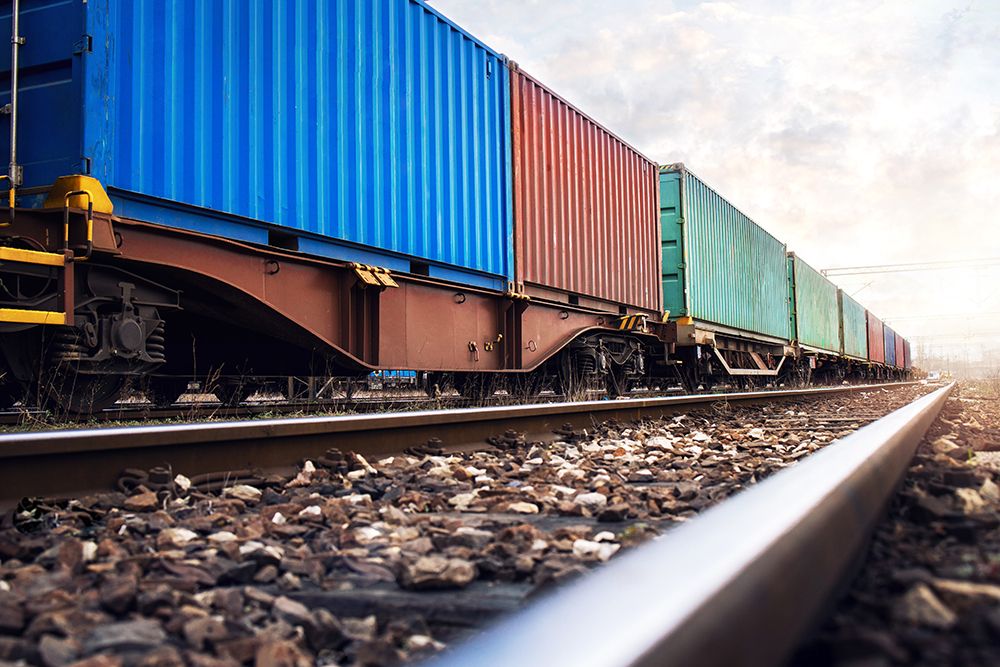
Rail Freight:
Rail freight is a viable option for businesses that need faster delivery times than sea freight but at a lower cost than air freight. It’s especially useful for shipments destined for inland locations in Europe, reducing the need for additional transportation upon arrival.
- Balanced Speed and Cost: Rail freight offers quicker transit times compared to sea freight, with costs lower than air freight.
- Environmental Benefits: Rail freight produces lower carbon emissions compared to air freight, making it a more sustainable choice.
- Reduced Handling: Direct rail routes between China and Europe mean less handling, reducing the risk of damage.
Express Freight:
For smaller, urgent shipments, express freight services provide a fast and reliable option. These services often include air or expedited rail options, ensuring your goods arrive quickly.
- Quick Delivery: Express freight ensures your shipments reach their destination in the shortest possible time.
- Convenience: Ideal for small parcels and urgent deliveries, express freight services offer door-to-door delivery and hassle-free logistics management.
Pros:
- Rail Freight: Cost-effective for medium-speed deliveries, environmentally friendly, and reliable for large shipments.
- Express Freight: Fast and convenient for urgent or high-priority shipments, often with door-to-door service.
Cons:
- Rail Freight: Limited routes and availability, may not cover all destinations as comprehensively as sea or air freight.
- Express Freight: Higher costs for the speed and convenience provided, less suitable for large or bulky shipments.
In conclusion, the choice of shipping method from China to Germany in 2025 depends on your specific business needs. Whether prioritizing cost, speed, or environmental impact, understanding these options will help you optimize your international shipping strategy.
Shipping from China to Germany: Major Ports and Trade Routes
Major Ocean Cargo Ports in China
China is home to some of the busiest and most efficient ocean cargo ports in the world. These ports are critical gateways for goods being shipped to Germany and other international destinations. Key ports include:
- Port of Shanghai: The largest and busiest container port globally, Shanghai handles a significant portion of China's maritime trade, making it a crucial hub for shipments to Europe.
- Port of Ningbo-Zhoushan: Known for its deep-water capabilities, Ningbo-Zhoushan is a major port for bulk cargo and container shipping, offering direct routes to European ports.
- Port of Shenzhen: A major port in Southern China, Shenzhen is a vital link in the global supply chain, particularly for electronics and high-tech goods.
- Port of Guangzhou: Another key port in Southern China, Guangzhou is integral to trade in manufactured goods and is well-connected to inland transportation networks.
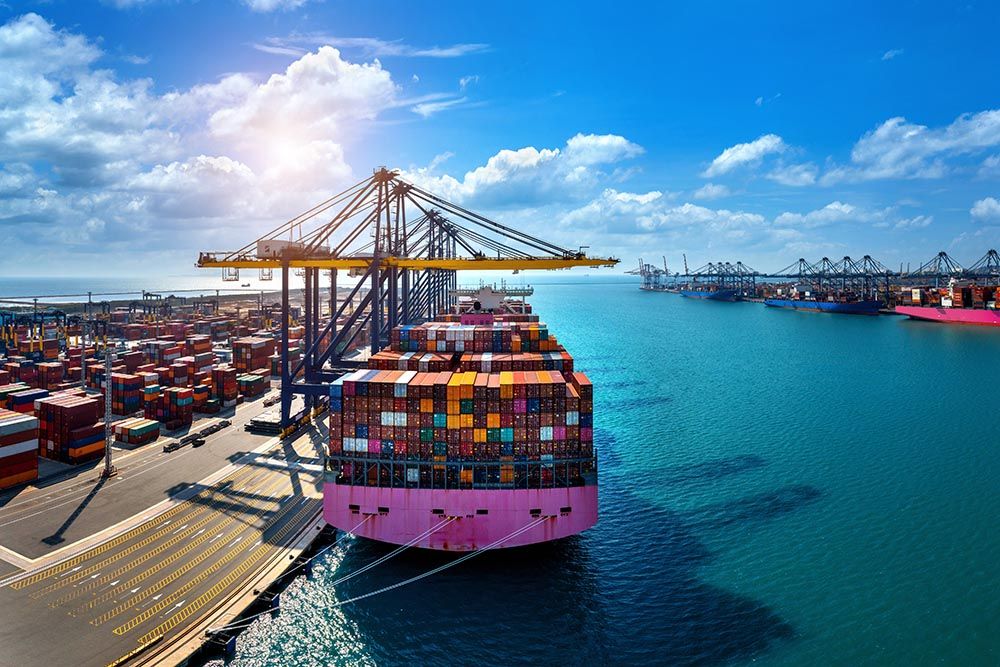
Major Air Cargo Ports in China
China's air cargo infrastructure is extensive, with several key airports serving as major hubs for international freight. These airports facilitate the swift movement of goods, making air freight a preferred choice for time-sensitive shipments to destinations like Germany. Below are the major air cargo ports in China:
-
Shanghai Pudong International Airport (PVG): As the busiest air cargo hub in China, Pudong Airport handles a significant volume of international freight. It is particularly crucial for shipments of electronics, textiles, and other high-value goods. With its advanced logistics facilities and extensive global network, Pudong Airport offers frequent direct flights to major German cities, making it a pivotal gateway for China-Germany trade.
-
Beijing Capital International Airport (PEK): Serving as a primary air cargo gateway for northern China, Beijing Capital Airport is essential for exports, including machinery, consumer goods, and perishable items. Its proximity to industrial hubs in northern China and its extensive air routes to Europe make it a key player in China’s air freight industry.
-
Guangzhou Baiyun International Airport (CAN): Located in southern China, Baiyun Airport is a leading air cargo hub known for handling large volumes of electronics, garments, and other manufactured goods. It has robust connections to European markets, including Germany, and is integral to the Pearl River Delta’s export-oriented economy.
-
Hong Kong International Airport (HKG): While geographically separate from mainland China, Hong Kong Airport is one of the world’s busiest air cargo ports. It serves as a critical transshipment hub, with state-of-the-art facilities that streamline the processing and transport of goods from mainland China to international markets, including Germany.
-
Shenzhen Bao'an International Airport (SZX): Shenzhen Airport is a major air cargo hub in the heart of China’s technology and manufacturing belt. It plays a key role in exporting high-tech products, electronics, and machinery to global markets. Its proximity to Hong Kong and excellent logistics infrastructure make it a vital node in China’s air cargo network.
-
Chengdu Shuangliu International Airport (CTU): As a significant air cargo hub in western China, Chengdu Airport supports the region’s burgeoning export market, particularly in electronics, pharmaceuticals, and agricultural products. It has developed direct cargo routes to Europe, facilitating trade between China’s inland regions and Germany.
-
Zhengzhou Xinzheng International Airport (CGO): Located in central China, Zhengzhou Airport has rapidly grown into a major air cargo hub, especially known for handling e-commerce goods. It is strategically positioned along the China-Europe trade routes, offering efficient air freight services to Germany and other European destinations.
-
Chongqing Jiangbei International Airport (CKG): Chongqing Airport is a key hub for western China, supporting industries such as electronics, automotive parts, and machinery. It provides direct cargo flights to Germany, contributing to the city’s role as a major logistics center in the Belt and Road Initiative.
-
Xi’an Xianyang International Airport (XIY): Serving the central and western regions of China, Xi’an Airport is crucial for the transport of goods along the New Silk Road. It handles a variety of cargo, including electronics, textiles, and machinery, with growing air routes to European markets.
Major Rail Hubs in China
Rail freight has become an increasingly popular option for shipping goods from China to Germany, offering a middle ground between sea and air freight in terms of speed and cost. Important rail hubs include:
- Chongqing: A key starting point for the China-Europe Railway Express, Chongqing is strategically located in central China and is a vital hub for westbound rail shipments.
- Xi’an: Known as the eastern terminus of the ancient Silk Road, Xi’an is now a major rail hub connecting China with Europe through modern rail corridors.
- Zhengzhou: A central rail hub, Zhengzhou serves as a significant departure point for freight trains heading to Europe, with well-established connections to Germany.
- Chengdu: As a key logistics center in western China, Chengdu plays a critical role in the rail freight network, offering efficient routes to European markets.
These major ports and hubs are essential to the logistics of shipping goods from China to Germany, providing various options depending on the specific needs of your business.
Major Ocean Cargo Ports in Germany
Germany, being one of Europe's largest economies, boasts several key ocean cargo ports that are vital for international trade, especially with markets like China.
-
Port of Hamburg: The largest and busiest port in Germany, Hamburg is a vital hub for container shipping. It connects Germany to global markets, especially in Northern and Eastern Europe, and handles a wide range of goods, from consumer products to industrial machinery.
-
Port of Bremerhaven: Known for its deep-water capabilities, Bremerhaven is a significant port for both containerized cargo and automobile exports. It is one of the most important European ports for transshipment and serves as a key entry point for goods coming into Germany.
-
Port of Bremen: Partnering closely with Bremerhaven, the Port of Bremen is essential for Germany's maritime trade, particularly in handling bulk cargo, breakbulk, and project cargo. Together, Bremen and Bremerhaven form one of the largest port complexes in Europe, facilitating the movement of goods across the continent and beyond.

Major Air Cargo Ports in Germany
Germany's air cargo network is well-developed, with several key airports that facilitate the efficient movement of goods both within Europe and internationally. Below are the major air cargo ports in Germany:
-
Frankfurt Airport (FRA): The busiest and most important air cargo hub in Germany, Frankfurt Airport handles a vast amount of freight, making it one of the leading cargo airports in Europe. It is a critical gateway for international trade, particularly for high-value and time-sensitive goods like electronics, pharmaceuticals, and automotive components.
-
Leipzig/Halle Airport (LEJ): This airport is a major global logistics hub, particularly known for being the central hub for DHL Express. Leipzig/Halle plays a crucial role in the fast-paced transport of goods across Europe and internationally, particularly in the e-commerce and express shipping sectors.
-
Munich Airport (MUC): Serving as the primary air cargo hub for southern Germany, Munich Airport is vital for the export and import of electronics, automotive parts, and perishable goods. It is well-connected to global air routes, making it a key player in Germany’s air cargo network.
-
Cologne Bonn Airport (CGN): A major express cargo hub, Cologne Bonn Airport is essential for handling e-commerce and other time-critical shipments. It serves as a key logistics center for companies like UPS and FedEx, with strong connections to both European and intercontinental destinations.
-
Berlin Brandenburg Airport (BER): Although newer compared to other German airports, Berlin Brandenburg Airport is increasingly important for air cargo, particularly for the Berlin-Brandenburg region. It supports the movement of goods within Germany and to international markets, with a focus on high-tech products and pharmaceuticals.
-
Stuttgart Airport (STR): Located in a region known for its automotive industry, Stuttgart Airport plays a crucial role in air freight, particularly for automotive parts and machinery. It serves as a key logistics hub for southern Germany, with connections to several international destinations.
-
Hannover Airport (HAJ): Hannover Airport is an important cargo hub in northern Germany, supporting the region's industrial base. It handles a variety of goods, including automotive parts, machinery, and consumer products, with efficient links to European and global markets.
-
Düsseldorf Airport (DUS): As a key air cargo hub in western Germany, Düsseldorf Airport is important for the region’s logistics network. It handles a wide range of goods, including fashion, electronics, and chemicals, with robust connections to European and international destinations.
Major Rail Hubs in Germany
Germany’s extensive rail network is a backbone of its logistics infrastructure, connecting the country to major European and global trade routes.
-
Duisburg: Known as the world’s largest inland port, Duisburg is a major rail hub in Germany, particularly for freight coming from China via the New Silk Road. It serves as a central logistics hub for distributing goods throughout Europe.
-
Hamburg: In addition to its significance as a sea port, Hamburg is also a major rail hub, with extensive connections to the rest of Germany and Europe. The city’s rail terminals are critical for moving goods inland from the port.
-
Frankfurt: Frankfurt’s central location and robust rail infrastructure make it a key hub for both passenger and freight rail transport. It is essential for moving goods across Germany and into neighboring countries.
-
Munich: Munich’s rail hub is vital for southern Germany’s logistics network, connecting the region to both domestic and international rail lines. It plays a significant role in the distribution of goods arriving by air and sea.
These major ports and hubs in Germany are integral to the country’s role as a leading player in global trade, providing efficient and reliable options for shipping goods to and from international markets.
Shipping Costs
It’s important for business owners importing goods from China to Germany to have a clear understanding of the associated shipping costs.
These costs can differ widely based on several key factors, such as the dimensions and weight of your shipment, the type of transport you choose, and any additional services you may need.
In the following sections, we’ll detail these costs and offer practical pricing estimates to guide your budgeting process.
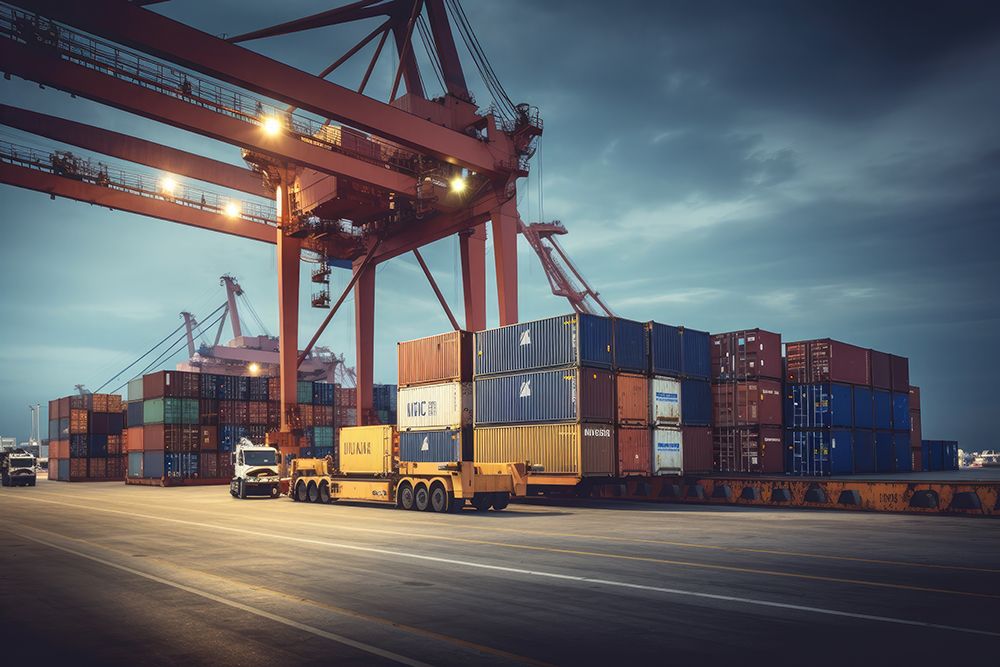
Factors Influencing Costs
Shipping costs from China to Germany can vary significantly based on several key factors:
-
Mode of Transport: The choice between sea, air, or rail freight has a significant impact on shipping costs. Sea freight is generally the most economical option for large volumes, while air freight, though faster, is more expensive due to higher fuel and handling costs. Rail freight offers a middle ground in terms of cost and speed, particularly for shipments along the China-Europe trade routes.
-
Shipment Volume and Weight: The size and weight of your shipment directly influence the cost. Larger shipments that fill an entire container (FCL) are typically more cost-effective per unit compared to smaller shipments (LCL) that share container space with other goods. Heavier and bulkier items also tend to incur higher shipping fees.
-
Distance and Route: The distance between the origin in China and the destination in Germany, as well as the chosen trade route, can affect shipping costs. Some routes may have higher fees due to port charges, tolls, or longer transit times.
-
Customs Duties and Taxes: Import duties, VAT, and other taxes imposed by German customs can add to the overall shipping cost. These charges vary based on the type of goods being shipped and their declared value.
-
Fuel Surcharges: Fluctuations in fuel prices can lead to variable fuel surcharges, particularly for air and sea freight. Shipping companies often pass these costs on to the customer, making fuel prices a crucial factor in determining shipping costs.
-
Insurance: To protect against potential loss or damage during transit, insurance is often recommended, especially for high-value shipments. The cost of insurance varies based on the value of the goods and the coverage level required.
-
Seasonal Demand: Shipping costs can also fluctuate based on seasonal demand. For instance, during peak shipping seasons, such as before major holidays or during the Chinese New Year, costs may increase due to higher demand for shipping services and limited availability of space.
Pricing Estimates
FCL Container Freight Rates
| From | To | 20-ft Container (USD) | 40-ft Container (USD) |
|---|---|---|---|
| Shanghai | Hamburg | $750 | $1,500 |
| Shenzhen | Bremerhaven | $800 | $1,700 |
| Ningbo | Bremen | $750 | $1,600 |
| Qingdao | Hamburg | $650 | $1,400 |
LCL Container Freight Rates
| From | To | Price per CBM (USD) |
|---|---|---|
| Shanghai | Hamburg | $120 |
| Shenzhen | Bremerhaven | $130 |
| Ningbo | Bremen | $125 |
| Qingdao | Hamburg | $115 |
Air Freight Rates
| From | To | Price per kg (USD) |
|---|---|---|
| Shanghai | Frankfurt | $4.50 |
| Beijing | Munich | $4.80 |
| Shenzhen | Cologne | $5.00 |
| Guangzhou | Berlin | $4.70 |
Rail Freight Rates
| From | To | Price per CBM (USD) |
|---|---|---|
| Wuhan | Duisburg | $150 |
| Chengdu | Hamburg | $160 |
| Xi'an | Munich | $155 |
| Zhengzhou | Bremen | $145 |
Managing Shipping Costs
Effectively managing shipping costs is crucial for maintaining profitability when importing goods from China to Germany.
By strategically choosing the right shipping method, consolidating shipments, and negotiating rates, businesses can significantly reduce expenses. Understanding the variables that impact costs—such as shipment volume, weight, and mode of transport—allows for better planning and budget allocation.
Additionally, staying informed about seasonal trends and fluctuations in fuel prices can help in timing shipments to take advantage of lower costs.
Employing these strategies will enable you to manage shipping expenses more efficiently, ensuring smoother and more cost-effective operations.
Transit Times and Tracking
Average Transit Times
When shipping goods from China to Germany, transit times can vary significantly based on the chosen shipping method. Understanding these timeframes is essential for managing customer expectations and planning inventory. Below is a general overview of the average transit times for different shipping methods:
| Shipping Method | Transit Time |
|---|---|
| Sea Freight (FCL) | 30-40 days |
| Sea Freight (LCL) | 35-45 days |
| Air Freight | 3-7 days |
| Rail Freight | 15-20 days |
| Express Shipping | 1-5 days |
Tracking and Management
Effective tracking and management of your shipments are vital for ensuring smooth operations and timely deliveries. Modern shipping solutions offer real-time tracking capabilities, allowing you to monitor your goods throughout their journey from China to Germany. This transparency not only helps in anticipating potential delays but also provides peace of mind by keeping you informed at every stage of the shipping process.
Using advanced tracking systems, you can receive updates on the location and status of your shipment, enabling proactive management of any issues that may arise. This level of visibility is especially important for businesses dealing with high-value or time-sensitive goods, as it allows for better coordination and response to unforeseen events.
By leveraging tracking tools and effective management practices, you can streamline your shipping process, reduce the risk of delays, and ensure that your goods arrive on time, keeping your customers satisfied and your business running smoothly.
Customs Clearance and Regulations When Shipping from China to Germany
Navigating Customs
When shipping goods from China to Germany, navigating the customs process is a critical step to ensure smooth delivery. Customs clearance involves several key procedures, including the submission of accurate documentation, compliance with German import regulations, and adherence to international trade agreements. Missing or incorrect paperwork can lead to delays, fines, or even the seizure of goods.
To avoid complications, it is essential to understand the specific requirements for your products, such as certifications, labeling, and any restrictions on certain goods. Working with experienced customs brokers or freight forwarders can greatly simplify the process, ensuring that all necessary forms are correctly completed and submitted in a timely manner. These professionals can also provide valuable guidance on the latest customs regulations and any changes that may affect your shipments.
Import Taxes and Duties
Importing goods into Germany from China is subject to various taxes and duties that must be calculated and paid before your goods can enter the country. The most common charges include Value Added Tax (VAT) and customs duties, which are determined based on the type of goods, their value, and the country of origin.
VAT in Germany is typically 19%, although a reduced rate of 7% may apply to certain products. Customs duties, on the other hand, are calculated according to the Harmonized System (HS) code assigned to each product. These duties can range from 0% to over 20%, depending on the item. Understanding these costs upfront is essential for accurate pricing and profit margin calculations.
It’s advisable to use a customs duty calculator or consult with a customs broker to estimate these fees before shipping. Properly accounting for import taxes and duties in your overall budget will help you avoid unexpected expenses and ensure compliance with German regulations.
If you don't want to store the goods before selling and you are afraid of bulk buying from China, the best solution for you is dropshipping, which you can easily sell to Germany. Start dropshipping with us right now in the easiest way possible
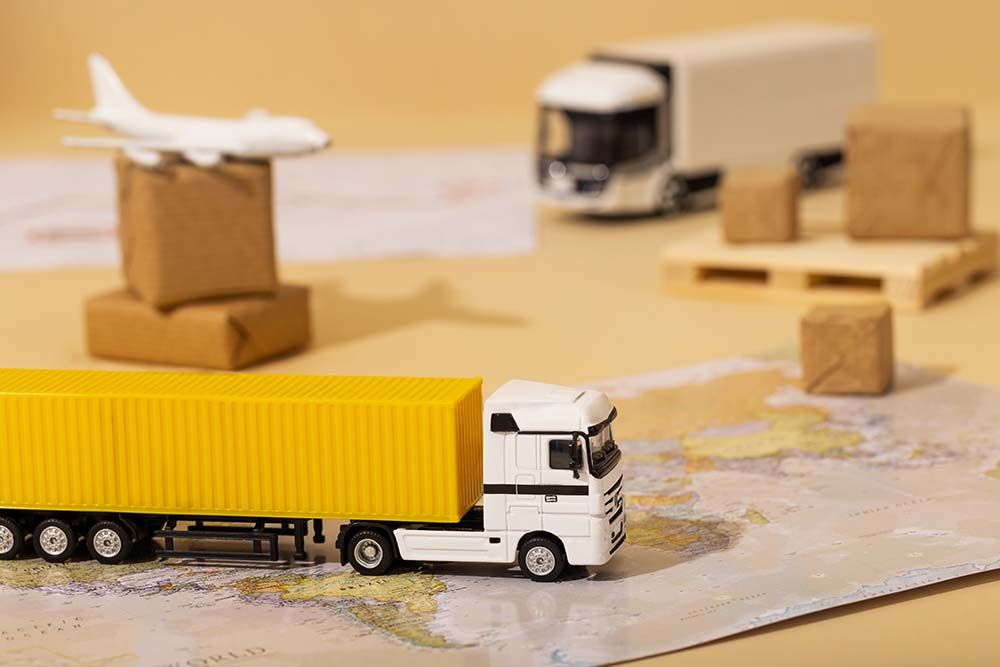
How to Choose a Reliable Freight Forwarder
Selecting a reliable freight forwarder is crucial for ensuring smooth and efficient shipping operations, especially when dealing with international trade. A good freight forwarder can handle the complexities of logistics, customs clearance, and transportation, allowing you to focus on your core business. Here are key factors to consider when choosing a reliable freight forwarder:
-
Experience and Expertise: Look for a freight forwarder with extensive experience in the specific routes and markets relevant to your business. An experienced forwarder will be well-versed in the regulations, documentation, and potential challenges involved in shipping goods from your origin to destination. Their expertise can help you navigate any unforeseen issues and ensure compliance with all legal requirements.
-
Comprehensive Services: A reliable freight forwarder should offer a full range of services, including customs clearance, warehousing, cargo insurance, and tracking. The ability to manage end-to-end logistics is important, as it ensures that your shipments are handled efficiently at every stage of the journey. Make sure the forwarder provides solutions that align with your specific needs, whether it’s sea, air, or rail freight.
-
Global Network: A strong global network of partners and agents is a key indicator of a reliable freight forwarder. This network ensures that your shipments can be managed smoothly, regardless of the origin or destination. It also means that the forwarder can handle any local issues that may arise, such as customs delays or changes in shipping regulations.
-
Transparency and Communication: Clear and consistent communication is essential when working with a freight forwarder. The forwarder should provide regular updates on the status of your shipments and be readily available to address any concerns. Transparency in pricing, including a breakdown of costs, is also important to avoid hidden fees and ensure you understand what you’re paying for.
-
Reputation and References: Research the forwarder’s reputation in the industry. Look for reviews and testimonials from other businesses that have used their services. A forwarder with a solid track record of reliability, timely deliveries, and excellent customer service is more likely to meet your expectations. Don’t hesitate to ask for references to gain insight into their performance and reliability.
-
Technology and Tracking: In today’s digital age, a reliable freight forwarder should utilize advanced technology to offer real-time tracking of your shipments. The ability to monitor your goods throughout their journey provides peace of mind and allows for better management of your supply chain. Additionally, the forwarder should offer an easy-to-use platform for managing bookings, documentation, and communication.
-
Cost-Effectiveness: While cost should not be the sole factor in your decision, it’s important to choose a freight forwarder that offers competitive pricing without compromising on service quality. Compare quotes from multiple forwarders to find one that provides the best value for your budget. Remember that the cheapest option may not always be the most reliable, so consider the overall package of services offered.
Best Practices for Efficient Shipping from China to Germany
Ensuring your goods arrive safely and on time from China to Germany demands careful attention to packaging and risk management. By adhering to best practices, you can enhance shipping efficiency and safeguard your cargo, while strategic logistics planning and risk management help protect your business from unforeseen challenges.
Packaging and Handling
Proper packaging and handling are critical to protecting your goods during transit from China to Germany. Here’s what you need to consider:
-
Use Durable Materials: Choose high-quality packaging materials that can withstand the rigors of long-distance transport. Reinforced boxes, pallets, and protective wraps can prevent damage to your products.
-
Secure Your Cargo: Ensure that all items are securely packed within containers to prevent movement during transit. Use padding, dividers, and straps to stabilize goods, especially if they are fragile or valuable.
-
Labeling: Proper labeling of packages is essential for efficient handling and customs clearance. Labels should include all necessary information, such as the destination address, handling instructions, and any required regulatory markings.
-
Consider Environmental Conditions: Account for the potential impact of temperature, humidity, and other environmental factors on your goods. If necessary, use climate-controlled packaging or desiccants to protect items sensitive to such conditions.
-
Follow Regulatory Guidelines: Adhere to the packaging regulations and standards required for international shipping. This ensures that your goods meet customs requirements and reduces the risk of delays or rejections.
Risk Management
Managing risks is an essential part of ensuring successful shipping from China to Germany. Here are some key strategies:
-
Insurance Coverage: Purchase comprehensive cargo insurance to protect your goods against potential risks, such as damage, loss, or theft during transit. Insurance provides financial security and peace of mind in case of unforeseen events.
-
Diversify Shipping Routes: To mitigate risks associated with geopolitical issues, natural disasters, or transportation strikes, consider diversifying your shipping routes. Having alternative routes or backup plans can help you maintain supply chain continuity.
-
Monitor Shipments: Use real-time tracking tools to monitor your shipments throughout the journey. This allows you to respond quickly to any delays or issues that may arise, minimizing the impact on your delivery schedule.
-
Stay Informed About Regulations: Keep up to date with the latest international trade regulations, customs requirements, and tariffs. Changes in these areas can affect your shipping process and costs, so staying informed helps you plan accordingly.
5.Work with Trusted Partners: Collaborate with reliable suppliers, freight forwarders, and customs brokers who have a strong track record in handling international shipments. Their expertise can help you navigate potential risks and ensure that your goods arrive safely and on time.
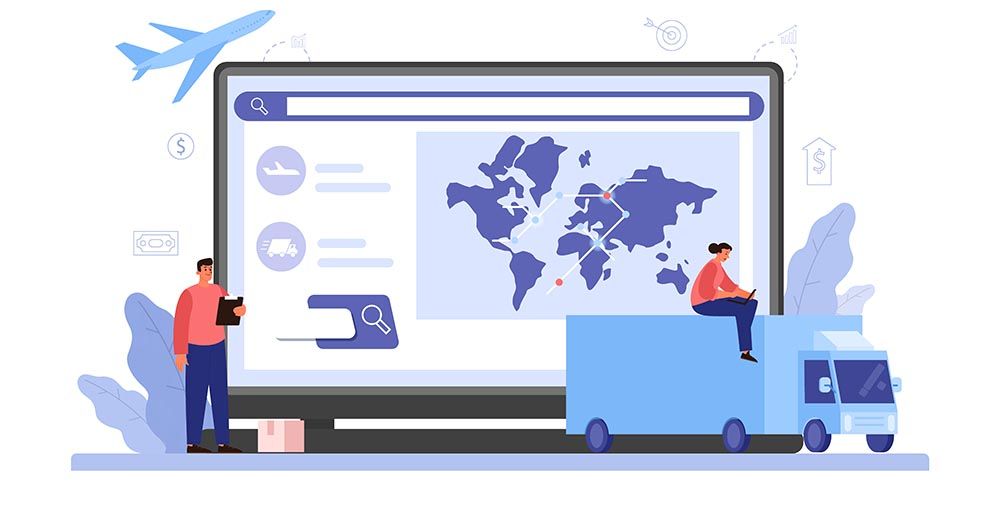
FAQs about Shipping from China to Germany
1. What are the most common shipping methods from China to Germany?
The most common shipping methods include sea freight, air freight, and rail freight. Sea freight is typically used for large, non-urgent shipments, air freight for faster delivery of smaller packages, and rail freight as a balanced option in terms of cost and transit time.
2. How long does it take to ship goods from China to Germany?
Transit times vary by shipping method: sea freight usually takes 30-40 days, air freight 3-7 days, and rail freight around 15-20 days. Express shipping options can deliver within 1-5 days.
3. What are the main costs involved in shipping from China to Germany?
Costs include freight charges, customs duties, VAT, packaging, insurance, and handling fees. The total cost depends on the shipping method, cargo size, and any additional services required.
4. What documents are required for customs clearance?
Commonly required documents include the commercial invoice, packing list, bill of lading, and any applicable certificates of origin or product-specific documentation. Accurate documentation is crucial to avoid delays.
5. How do I choose the right shipping method?
Choose based on your budget, delivery timeline, and the nature of the goods. For example, sea freight is cost-effective for large shipments, while air freight is better for urgent or high-value items.
6. Can I track my shipment from China to Germany?
Yes, most freight forwarders and carriers provide real-time tracking services, allowing you to monitor your shipment throughout its journey.
7. What are the key ports in China and Germany involved in shipping?
Major ocean cargo ports in China include Shanghai, Shenzhen, and Ningbo, while key ports in Germany are Hamburg, Bremerhaven, and Bremen. Major air cargo hubs include Beijing and Frankfurt.
8. Are there any restrictions on what can be shipped from China to Germany?
Yes, certain items are restricted or prohibited due to safety, health, and environmental regulations. Always check with customs or a freight forwarder to ensure your goods comply with both Chinese and German regulations.
9. How do import taxes and duties work when shipping from China to Germany?
Import taxes, including VAT and customs duties, are calculated based on the value and type of goods. Customs duties vary depending on the product category, while VAT is generally 19% in Germany.
10. What should I do if my shipment is delayed?
In case of delays, contact your freight forwarder or carrier for updates and potential solutions. They can provide guidance on how to proceed, including filing claims if necessary.
Ship Smarter from China to Germany with Oneclick Online Service
When it comes to shipping from China to Germany, Oneclick Online Service offers a seamless and efficient solution. With our expertise in logistics, extensive network, and comprehensive services, we help you navigate the complexities of international shipping with ease.
Whether you’re shipping by sea, air, or rail, Oneclick Online Service ensures your goods are handled with the utmost care and delivered on time. We provide tailored solutions to meet your specific needs, from cost-effective shipping options to real-time tracking and reliable customs clearance support.
Choose Oneclick Online Service to simplify your shipping process, reduce costs, and ensure a smooth journey for your products from China to Germany. Ship smarter with us and focus on growing your business while we take care of the logistics.
Fill out a contact request, and we'll make sure your goods arrive safely and efficiently.



